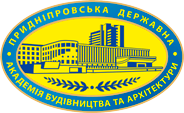Scientific profile

Doctor of technical sciences, professor, academician of the Academy of Sciences of the Higher School of Ukraine
Svitlana
HUBENKO
Contacts and CV
Publications
1. S. I. Gubenko, E. V. Parusov. Influence of Eutectic-Type Inclusions on the Red Brittleness of Steels. Materials Science, 2003, vol. 58, No. 6, р. 731-739. SCOPUS DOI 10.1007/s11003-023-00723-0
2. Svetlana Gubenko. About wave nature of the formation of gradient and microcomposite zones near non-metallic inclusions during laser processing of the steels. Journal of material science and technology research, 2023, 10, 000-000 ISSN: 2410-4701/23 Submitted April 28, 2023. https://zealpress.com/jms/index.php/jmstr/article/view/487/378 https://ipindexing.com/journal-details/Journal-of-Material-Science-and-Technology-Research/1321 DOI https://doi.org/10.31875/2410-4701.2023.10.03 DOI: 10.31875/2410-4701.2023.10.03 April 2023 /references
3. S. Gubenko. On the role of non-metallic inclusions in ensuring crack resistance of steel. MTM Machines, Technologies, Materials. 2023, issue 5 (17), p. 198-201 ISSN PRINT 2535-0021 ISSN WEB 2535-003X http://mtmcongress.com/ https://stumejournals.com/mtm.htm
4. S. Gubenko, I. Mamuzić. Interphase boundaries inclusion-matrix in steels. 15th International symposium of Croatian metallurgical society S H M D ´2022 MATERIALS AND METALLURGY / MATERIJALI I METALURGIJA, book of abstracts, Zagreb, Croatia, March 22 – 23, 2022, р. 552. http://ilija-mamuzic.from.hr
5. S. Gubenko. The features of recrystallization of steels under laser action. Material science. Nonequilibrium phase transformations. 2022, issue 1(5), p. 27-29 ISSN PRINT 2535-0218 ISSN WEB 2535-0226 https://stumejournals.com/ms.htm
6. S. Gubenko. About corrosion damage of the railway wheels. MTM Machines, Technologies, Materials. 2022, issue 3 (23), p. 217-221 ISSN PRINT 2535-0021 ISSN WEB 2535-003X https://stumejournals.com/mtm.htm
7. Gubenko S. I., Parusov E. V. About recrystallization processes occurring in laser processing of steel. ХV Міжн. науково-техн. конф. «Нові сталі та сплави та методи їх оброблення для підвищення надійності та довговічності вироьів», Запоріжжя, 8-10.11. 2022– 169 с. . – с. 125-126 диск (DVD-ROM) ISBN 978-617-529-387-4
8. ParusovE. V., GubenkoS. I., PrykhodkoI. Yu.Construction of technologies for manufacturing products of critical products using computer simulation. International scientific conference Information technologiesand management in highereducation and sciences.Part 2.November 28, 2022, Fergana, the Republic of Uzbekistan, IZDEVNIECISA BALTIJA Publishing, 2022, p. 372-375, Publishing House “Baltija Publishing”, DOI: 10.30525/978-9934-26-277-7-183, DOI https://doi.org/10.30525/978-9934-26-277-7-183
9. Gubenko, S., Ivanov, I., Kononov, D., Kiselev, I. Wear of Railway Wheels Tread. AIP Conference Proceedingsthis link is disabled, 2022, 2503, 080010 Conference Paper • Открытый доступ SCOPUS https://www.scopus.com/authid/detail.uri?authorId=7006727582
10. Gubenko S. I. Effect of Laser Surface Treatment on the Initiation of Corrosion Defects near Nonmetallic Inclusions. Materials Science, Vol. 58, No. 3, November, 2022 р. 313-317 SCOPUS , Web of Sci DOI 10.1007/s11003-023-00665-7 https://trebuchet.public.springernature.app/get_content/5c71e6fb-f67a-40ce-92df-f2c7868a4d2a
Courses
1. Material Science
The course is aimed at forming a set of fundamental knowledge and practical skills necessary for successfully solving complex problems in the selection of materials for the manufacture of designs, parts of machines and mechanisms based on an understanding of the processes of forming the structure of metals and alloys during crystallization and in the solid state, as well as means of influencing the structure and properties of metals and alloys. The structure and properties of modern construction materials are studied, as well as the essence of phenomena that occur under the conditions of production and operation of products, which allows you to master the skills of choosing construction materials and rational methods of their processing.
2. Physics of destruction of structural materials
The course is aimed at forming a set of fundamental knowledge and practical skills necessary for successfully solving complex problems of choosing materials for the manufacture of designs, parts of machines and mechanisms based on understanding the processes of structural changes during loading, which lead to the destruction of structures, buildings, mechanisms, as well as experimental assessment of the crack resistance characteristics of materials in accordance with regulatory documents. Physical processes and structural changes in modern structural materials during loading under various conditions are studied, as well as the essence of phenomena that occur under the conditions of production and operation of structures, designs, mechanisms; master the skills of choosing construction materials.
3. Mechanical properties and structural strength of materials
The course is aimed at obtaining knowledge and a thorough understanding of the mechanical properties and structural strength of materials. The relationship between the structure and mechanical properties of building materials is studied, which makes it possible to evaluate the influence of thermal and mechanical treatment on the change in the mechanical properties of materials. Macro- and microfractographic methods of researching brittle fracture of materials are studied. Lectures and practical classes allow you to master the methods of determining the main strength and plastic characteristics in tension, compression, torsion, bending, as well as hardness according to Brinell, Vickers, Rockwell and microhardness methods, as well as to gain in-depth knowledge of heat resistance, fatigue, and wear resistance.
4. Physico-chemical methods of analysis
The course is aimed at familiarizing students with the methodology of scientific research in materials science, traditional and modern methods of structure research, phase and chemical analysis of materials, which are necessary in the scientific and practical work of materials science engineers, are considered. Lectures and practical classes allow you to learn traditional and modern methods of research and physical processes that determine their basis, to familiarize yourself with the methods and techniques of analysis of chemical and phase composition, as well as the structure of materials at different structural levels, which is necessary for mastering the skills of applying analysis methods for research of structural materials.
